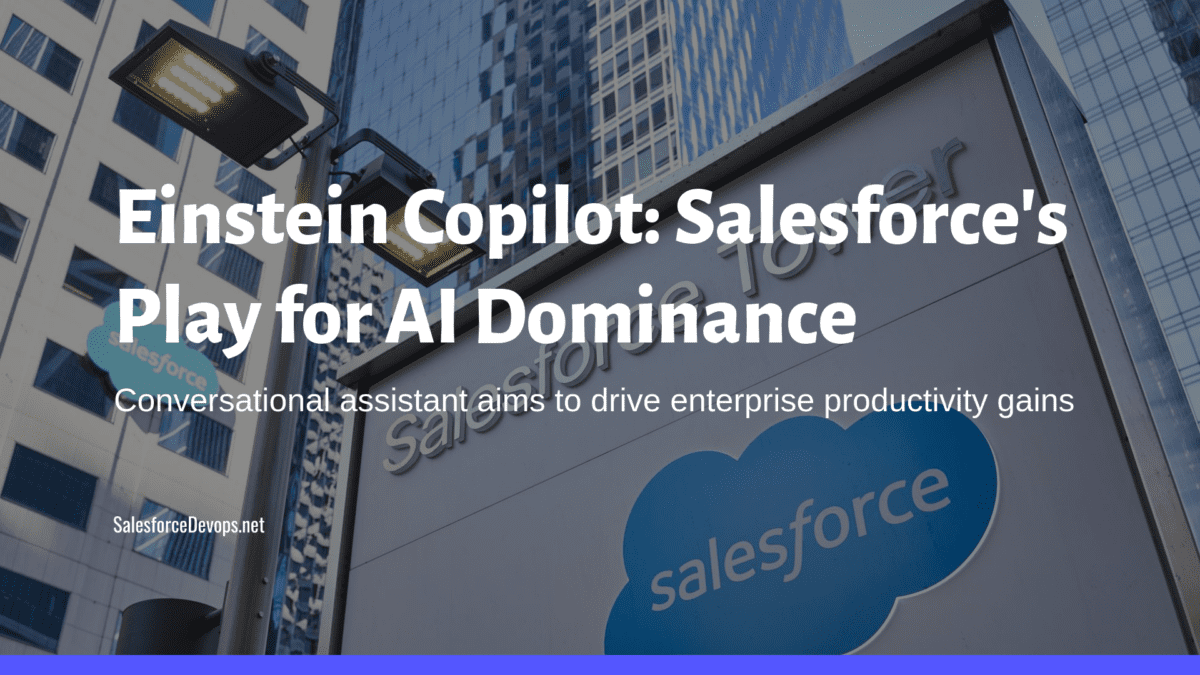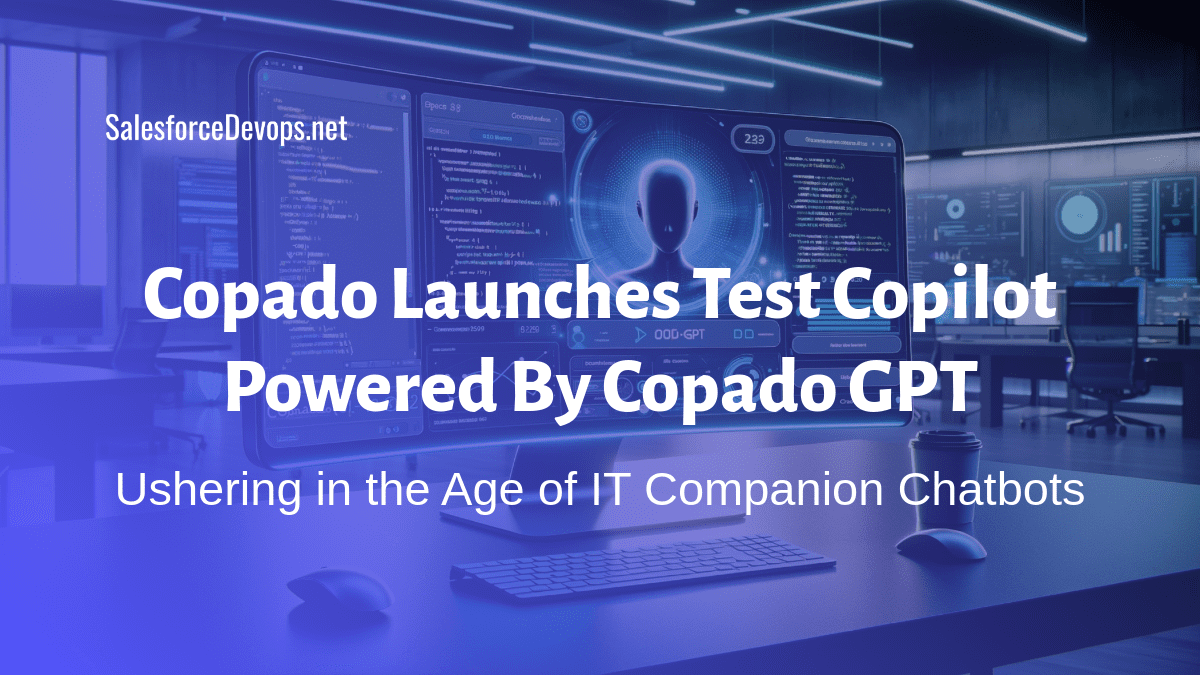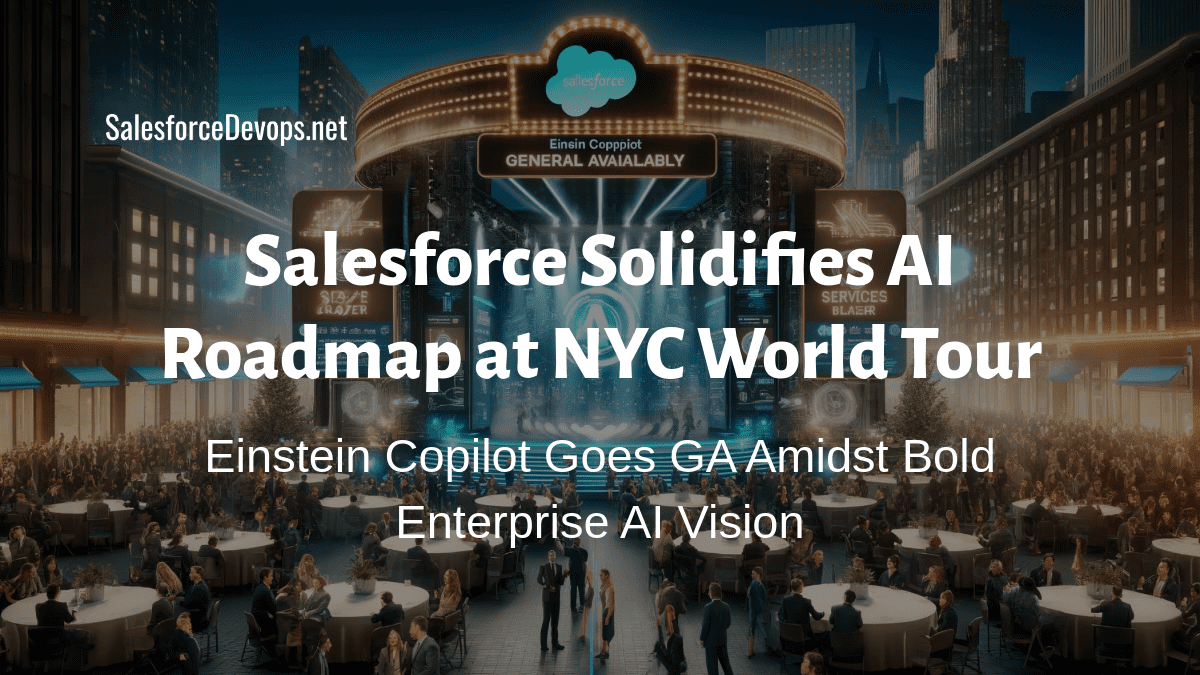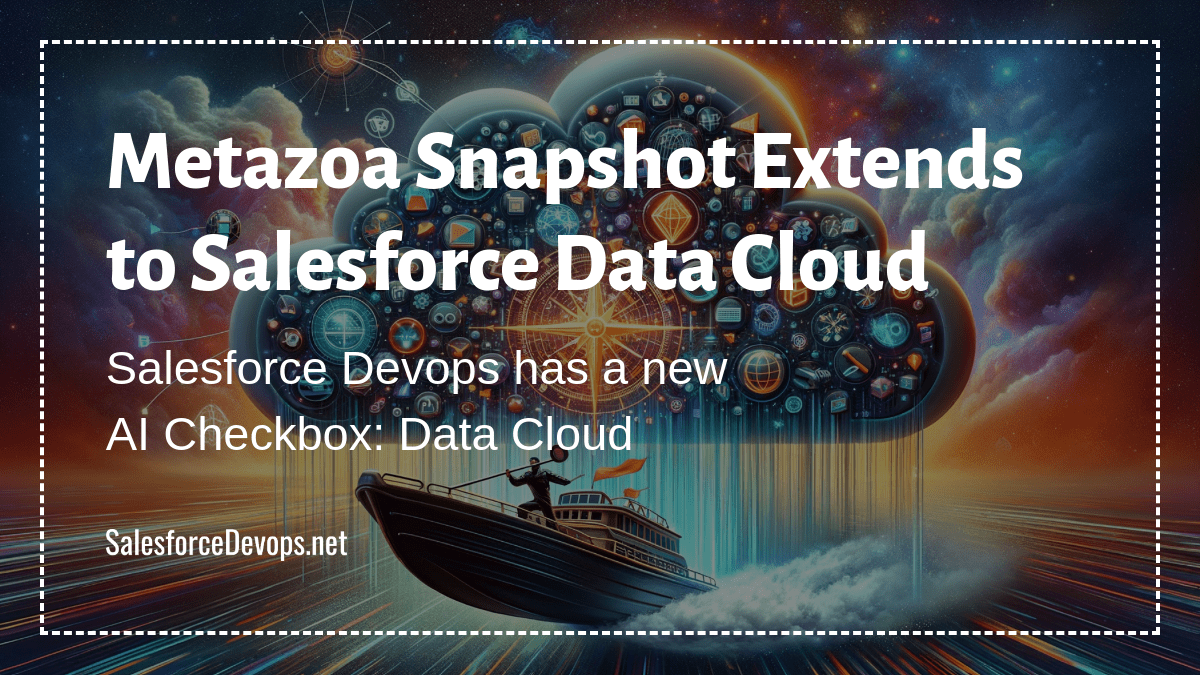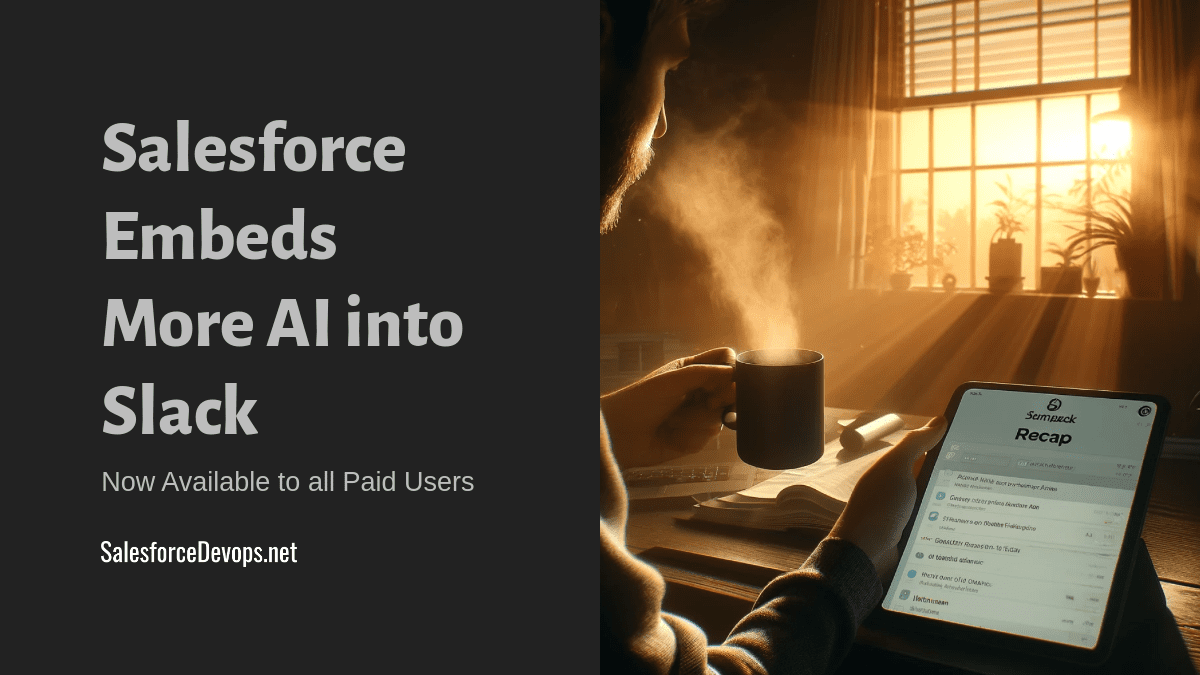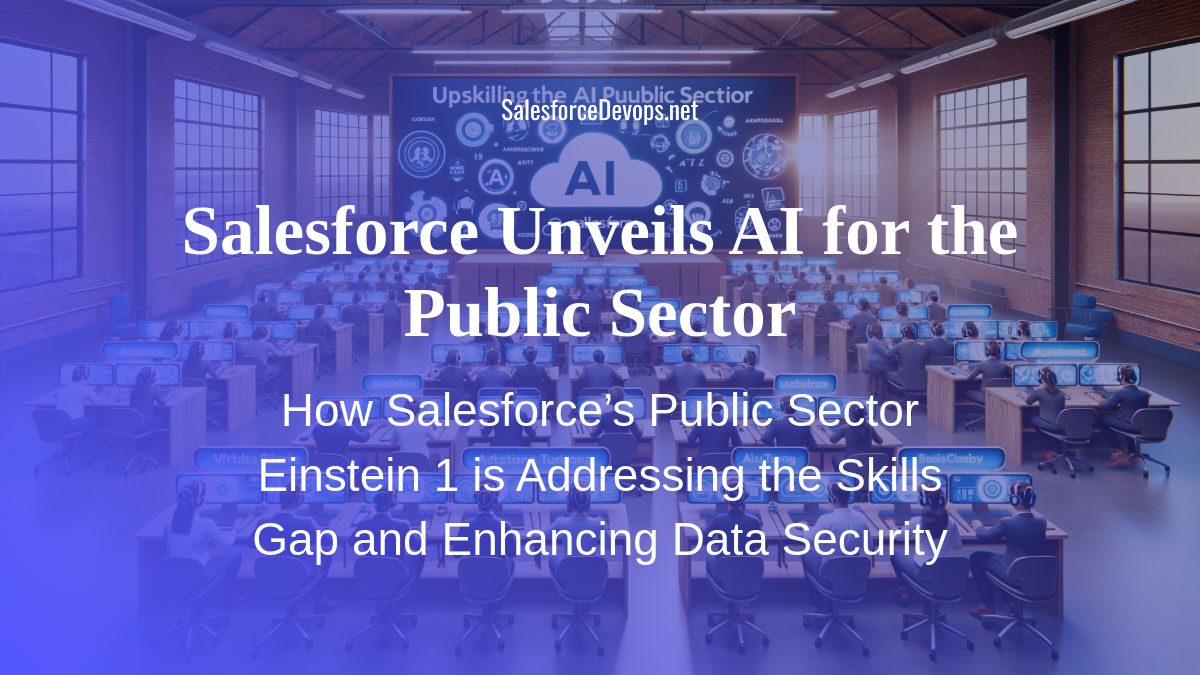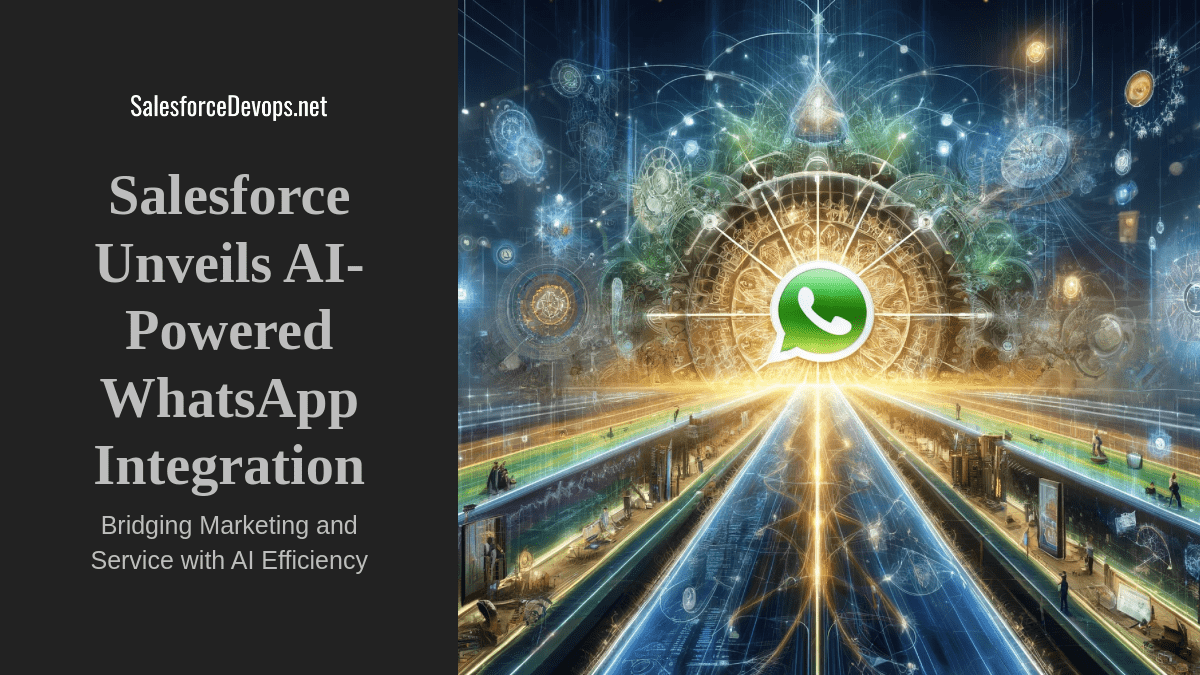Einstein Copilot: Salesforce’s Play for AI Dominance
At its annual Dreamforce conference, Salesforce introduced Einstein Copilot, a new conversational AI assistant designed to boost employee productivity. The announcement came during a press conference where Salesforce executives touted Einstein Copilot as the next generation of its popular Einstein AI capabilities.
“We’re living in this historic moment right now and it’s kind of like 1999 was for the cloud or living it for AI and I think we’ll remember this day years from now,” remarked Clara Shih, CEO of Salesforce AI, emphasizing the company’s view that AI represents a breakthrough.
Table of contents
- New Einstein 1 Branding
- Leveraging Metadata for AI Integration
- Unveiling Copilot: An Executive Thinking Partner
- Einstein Copilot: Conversational AI for the Enterprise
- Einstein Copilot Studio for Customization
- Driving Productivity Across Industries
- Final Take: Salesforce’s AI Platform Impresses but Faces Challenges
New Einstein 1 Branding
Salesforce has removed all GPT references in its marketing materials. All AI efforts are now rebranded under the Einstein 1 moniker. Einstein 1 represents Salesforce’s next generation AI capabilities, with the Einstein 1 Platform at the core. While the announcements contain exciting innovations like the Einstein Copilot assistant, one part of the news signals Salesforce’s ambition to push enterprise AI even further – Einstein Skills.
But Einstein Copilot is just one part of a broader AI refresh aimed at capturing the buzz around generative AI. Einstein 1 Platform represents Salesforce’s new unified AI architecture. It combines Data Cloud for data unification with Einstein’s predictive analytics and now, generative capabilities.
Salesforce is also offering Data Cloud Starter for free to existing Sales Cloud and Service Cloud customers. This aims to make it easy for businesses to start connecting data across different applications using Data Cloud.
Leveraging Metadata for AI Integration
Salesforce’s metadata framework, which provides a common data model across its platforms, enables the seamless Einstein Copilot integration. As Patrick Stokes, EVP of Product & Industries Marketing noted, metadata allows “the ability to extend the prompts and the ability to give Einstein new skills, in the context of Salesforce.”
Salesforce has extended its metadata framework to other clouds like Marketing and Commerce that didn’t originally leverage it. This allows Einstein to integrate tightly with data from across all of Salesforce.
By underlying Einstein with metadata, Salesforce simplifies building AI apps and automation. The mature metadata model gives Salesforce an edge in rapidly deploying AI by providing the connective tissue to embed it organization-wide.
Unveiling Copilot: An Executive Thinking Partner
Unlike Salesforce’s existing predictive Einstein analytics, Einstein Copilot provides users with a natural language interface to interact directly with AI within their workflows. “It’s about going from clicking through navigation to simply getting the information that you’re looking for. For example, with Skills users will access workflows by using natural language through Einstein copilot,” explained Shih.
According to Shih, early Einstein AI adopters are already achieving major productivity gains. “We’re seeing this really drive incredible results. Service Cloud customers that have rolled out Einstein 1 to their teams are seeing the average time for customer support issue resolution go down,” she stated.
Stokes clarified how Einstein Copilot expands on Salesforce’s existing Einstein capabilities. “What’s new here is the conversational user interface, which is Einstein Copilot. Now every Salesforce app now will have a conversational interface in the right rail of your app,” he remarked.
Einstein Copilot: Conversational AI for the Enterprise
Powered by generative AI, Einstein Copilot allows users to interact conversationally with their Salesforce orgs in conversations grounded in org metadata and the user’s current data context. Copilot lets users ask questions or give instructions in natural language, and Copilot will respond with personalized recommendations, summaries, or content tailored to data and context.
For example, a sales rep could ask Copilot for help in preparing for an important client meeting. Copilot would get a detailed overview of the account plus relevant talking points. Or a service agent could request Copilot to summarize a complex customer case into clear action steps.
Stokes was also asked what differentiates it from Microsoft’s Copilot products. “It is the platform itself. The ability to extend the prompts and the ability to give Einstein new skills in the context of Salesforce,” said Stokes who emphasized Einstein Copilot’s extensibility.
Einstein Copilot Studio for Customization
Salesforce also announced Einstein Copilot Studio, which allows companies to customize the assistant for their business needs. Key customization options include:
- Prompt Builder to create prompts matching brand voice and tailored to specific data.
- Skills Builder to automate workflows like password resets or ecommerce returns.
- Model Builder to select preferred AI engines including Salesforce, AWS, and Google.
The Skills Builder caught my eye as way to package the popular concept of autonomous agents for enterprise users. Autonomous agents, as envisioned in community projects such as LangChain or AutoGPT, are LLM-enabled workflows that will reach out to the Internet using the web or API calls on your behalf. Salesforce appears to be doing something similar with the low-code Skills Builder, which would be an innovation in enterprise AI.
Driving Productivity Across Industries
According to Salesforce, early Einstein AI adopters such as Heathrow Airport and AAA are reporting faster service resolution times and other productivity metrics. Salesforce is also piloting Copilot with customers like Air India.
Salesforce is positioning Einstein Copilot as the next phase of automation for repetitive tasks. While it may displace some routine work, Clara Shih expressed optimism about AI’s job impact: “I’m very optimistic about the future. I think we’ll see new jobs created such as prompt engineers.”
Final Take: Salesforce’s AI Platform Impresses but Faces Challenges
With its revamped Einstein, Salesforce stands poised to lead enterprise AI – if it can execute its robust vision. Integration with Salesforce’s workflows and trust architecture provide advantages. But introducing AI safely at scale across large complex organizations will prove challenging.
Metrics linking AI directly to cost savings and revenue gains will be essential to driving adoption and determining optimal human/AI collaboration models. Salesforce must also attract skilled partners who can build domain-specific solutions on its platform.
Overall, Salesforce’s AI platform capabilities appear impressive. The incremental approach from productivity enhancers like Propmt Builder and Einstein Copilot toward increasingly automated Einstein Skills reflects a thoughtful strategy. But Salesforce’s ability to guide enterprises cautiously yet ambitiously on the AI journey will determine its success.
